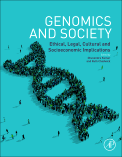Yesterday, we published an article in Genomics in Medicine titled: “Are whole-exome and whole-genome sequencing approaches cost-effective? A systematic review of the literature”. The lead author for this work was Katharina Schwarze, who spent several months at HERC working on a project related to the costs of whole genome sequencing.
The aim of this particular piece of work was to summarise the current health economic evidence for whole-exome sequencing (WES) and whole-genome sequencing (WGS). The key finding was that the current health economic evidence base to support the more widespread use of WES and WGS in clinical practice is very limited. Other important findings include the following:
- Cost estimates for a single test ranged from $555 to $5,169 for WES and from $1,906 to $24,810 for WGS.
- There was no evidence that the cost of WES was falling over time, and only limited evidence that the cost of WGS was decreasing.
- Few studies used outcome measures recommended for use in economic evaluations, such as survival or quality of life.
- Only eight publications were full economic evaluations, of which only five produced evidence that WES or WGS may represent a cost-effective use of limited health-care resources.
We conclude by making four practical recommendations:
- Future studies should report costs by stage of testing for WES and WGS and highlight particularly notable costs, as it is currently difficult to identify key cost drivers.
- Future studies should report resource use and unit costs in a disaggregated manner to aid interpretation.
- Future studies evaluating the cost-effectiveness of WES or WGS should use calculated costs instead of prices, to better capture the economic value associated with WES and WGS, and to avoid incorrect and inefficient adoption decisions.
- Future studies of the cost-effectiveness of WES and WGS should include trained health economists as coinvestigators to improve study quality.
This paper challenges a number of assumptions in the literature and in the wider conversation regarding the cost and potential value of next generation sequencing technologies. I hope you’ll read, share, and debate these findings!
